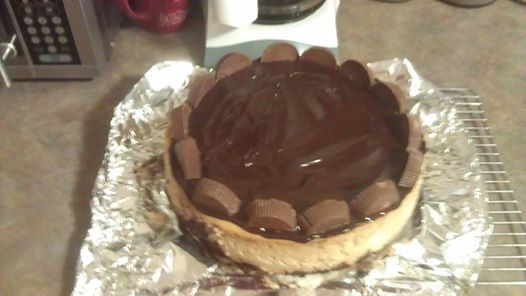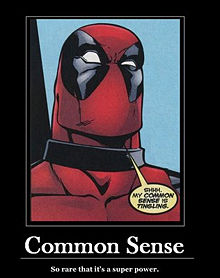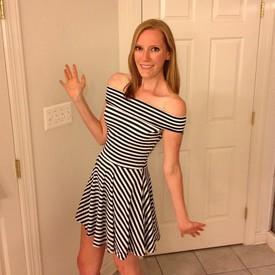Is it true you should eat within 30 minutes of waking up?
Replies
-
Yes...it will wake up your metabolism. Even if it's just half a banana. Imagine that your metabolism is a camp fire and it goes out when you fall asleep. How do you start it again? Throw on some wood. Every three hours you add more wood to keep that fire burning hot. Your food is the wood. Make sense?
Except I've never seen a shred of proof (peer-reviewed journal article, large-scale double-blind study, etc. etc.) that supports your theory. Really glad that eating every 3 hours works for you, that is terrific, but please don't spread your personal experience around as scientific truth.
Oh, and if I had to eat every three hours I would be one seriously unhappy camper as I certainly sleep more than 3 hours a night and there is NO WAY that I would set an alarm to wake me in the middle of the night so I could eat.0 -
Here is the cake that is in my diary (over last weekend) and probably later as I froze some of it...
Come on over, I want to bake more today but have too much cake left so I'm sharing :drinker:
And where would I be going??
Don't tease woman....:laugh: :laugh: :laugh:
We are talking about home made cake.....this is no joking matter
In the immortal words of Eddie Murphy..."wanna lick...psyh" :laugh:
I am guessing I am not invited to your cake party...
Your husband would kick my @$$ :laugh: :laugh:
sure why not but Im coming to the beach too...
as for my husband..no probably not... he's not the jealous type...:smokin: 0
he's not the jealous type...:smokin: 0 -
This exists and I just may make it....
http://www.bettycrocker.com/recipes/maple-bacon-upside-down-cake/ea516c58-442c-4087-b30d-3c7ac2e7d467
Oh nice, I'll have to try that, I'm all about bacon and baked goods! I made these recently and they were so good... Candied Bacon Dark chocolate Cupcakes with maple frosting 0
0 -
I must be doing it all wrong. I don't eat for at least 4 to 6 hours after I get up. Stupid IF! I'll never lose any weight now!0
-
sure why not but Im coming to the beach too...
as for my husband..no probably not... he's not the jealous type...:smokin:
he's not the jealous type...:smokin:
Ok, come on then.
He may not be the jealous type, but I am still gonna play it safe. 0
0 -
Oh nice, I'll have to try that, I'm all about bacon and baked goods! I made these recently and they were so good... Candied Bacon Dark chocolate Cupcakes with maple frosting
YUMM!!!!0 -
I love how this went from a "timed nutrition" thread to a "show off your cake" thread.
 I wants ALL THE CAKE!!!!
I wants ALL THE CAKE!!!!
Cake is a much more interesting topic!
and all the people spreading misinformation have been summarily "spanked" and won't come back now...so cake it is...0 -
hi..actually what i heard is exercise with in 30 min from waking up give a good boost to your metabolism and than have bkfast!! is helping me alot this tip!! and i try not to eat 2 hours before bed... plus no carbs in the afternoon 4 pm onwards..0
-
Eat when you want. Period. Your metabolism does not need to be awakened, jump started, turbo charged, or otherwise prodded into life.0
-
For a long time I made sure I ate in the morning and then tried to eat 5 to 6 small meals a day....the problem is that it made me more hungry. I would eat when i woke up just because I wanted to "speed up my metabolism".....but I just stayed the same weight or even gained. I now just track my calories and I eat when I am hungry. If the evening time comes and I am still 700 calories below my goal of 1910 cal/day, I will have a snack. I am losing weight, looking better, and feeling great..............so skipping that breakfast cant be that bad.
I believe that there is some misconception that people are promoting a diet of garbage food, that is a big exageration. People on here are saying if you want to treat yourself to KFC or that Big Mac, that is okay but you have only X amount of calories left that you can take in that day. Generally speaking everyone on here concerned about being healthy is eating the "good stuff" too. I doubt that anyone serious about weight loss is eating two big macs a day and nothing else.
It's funny how someone can trash someone else for eating that cake in the morning but eat a bowl of Fruit Loops or Frosted Flakes....whats the difference? Following that logic wouldn't it be worse to eat that cake before bedtime than for breakfast?0 -
It's true, for ME... I'm starving when I wake up. That being said - it doesn't matter when you eat your calories.0
-
hi..actually what i heard is exercise with in 30 min from waking up give a good boost to your metabolism and than have bkfast!! is helping me alot this tip!! and i try not to eat 2 hours before bed... plus no carbs in the afternoon 4 pm onwards..
So if I eat my cake at 3:59 I'm good?? But what happens if I'm traveling in different time zones will my body know when it's 4? Can I give you a bit of advice... when reading weight loss tips or whatever.. read it, stop think about it rationally and apply common sense than make a decision. 0
0 -
I don't have an appetite for at least an hour or so after waking up. I enjoy my food, forcing myself to eat when I don't feel hungry would seem like a waste of calories.0
-
hi..actually what i heard is exercise with in 30 min from waking up give a good boost to your metabolism and than have bkfast!! is helping me alot this tip!! and i try not to eat 2 hours before bed... plus no carbs in the afternoon 4 pm onwards..
If it works for you then carry on.
But I can tell you, I ate 300 gr of white rice the other day before I went to bed.
My last meal comes at around 8pm, and then I am in bed by like 10 or 10300 -
I eat when I'm hungry.
I go by what my body tells me, not my watch. I can't be bothered (or have the time) to be a clock watcher and time my meals. When I'm hungry I eat, no matter what time of day it is. I stay within my calories and watch my macros. Thats my preference, it works for me. Do what works for you.
And 1lb a week is a great loss.0 -
the reason for this method of madness lol is eating smaller portions more frequently speeds up your metabolism which in turn assists in weight loss. Also by eating more frequently your less likely to binge......Slow and steady wins the race lol but nope, as long as you eat 5-6 small meals a day it don't matter. I mean obviously you wont eat huge meal 10 mins before bed...... I eat every 2-3 hours and 6 small meals a day and i"m doing great and don't feel hungry.
What does it matter if you eat 1-3 meals versus 5-6? And what is wrong with eating right before bed?
But it doesn't speed up your metabolism...:huh:
Have you tried it?
It doesn't speed up your metabolism. I have tried it and it didn't work for me at all. I just got fatter, actually, because I ended up eating more calories over the course of the day. Period.
People need to find what works for their own body. OP: I personally don't eat until 5 - 8 hours after I wake up.0 -
hi..actually what i heard is exercise with in 30 min from waking up give a good boost to your metabolism and than have bkfast!! is helping me alot this tip!! and i try not to eat 2 hours before bed... plus no carbs in the afternoon 4 pm onwards..
So if I eat my cake at 3:59 I'm good?? But what happens if I'm traveling in different time zones will my body know when it's 4? Can I give you a bit of advice... when reading weight loss tips or whatever.. read it, stop think about it rationally and apply common sense than make a decision.
Agreed! Common sense works! And also just known yourself. We are all different too!
Like personally (don't do this at home, kids!) I don't eat breakfast. Never liked it, my Mum doesn't either...and if I do have breakfast I am starving hungry by 11. Whereas if I don't have breakfast I can easily last until lunchtime and be satisfied with my lunch...but don't do this at home, kids! Not a weight loss tip whatsoever, it's just what works for my head and body. I know it isn't adviced by anyone and I do not recommend it to anyone!0 -
Doesn't matter when you eat. I hardly ever eat breakfast. And it's only because I'm not hungry in the morning unless it's shark week. Also I get to eat more during the evening, which is when I WANT to eat the most. I eat lunch, and eat dinner. That's usually it. I'm not gonna force myself to eat just because it's 8am if i'm not hungry. I'd rather wait and then eat whatever I want in the evening
 1 lb per week is awesome! I wish I could lose weight that quickly :flowerforyou:
1 lb per week is awesome! I wish I could lose weight that quickly :flowerforyou:
Carbs after 4pm? lol what happens at/after 4pm?0 -
Carbs after 4pm? lol what happens at/after 4pm?
Whatever it is, I hope it involves me and you. :laugh: :laugh: :laugh: :laugh:0 -
Carbs after 4pm? lol what happens at/after 4pm?
Whatever it is, I hope it involves me and you. :laugh: :laugh: :laugh: :laugh:
:devil:0 -
Carbs after 4pm? lol what happens at/after 4pm?
Whatever it is, I hope it involves me and you. :laugh: :laugh: :laugh: :laugh:
:devil:
:flowerforyou: :flowerforyou:
 0
0 -
I don't have an appetite for at least an hour or so after waking up. I enjoy my food, forcing myself to eat when I don't feel hungry would seem like a waste of calories.
This. Also, the earlier I eat, the more I WANT to eat, and often find that I've then used up almost all of my calories by mid afternoon. My sis-in-law and I just had a discussion about that very thing (she's doing Slim-Fast, more power to her.) I made the mistake of mentioning that I normally don't like to even start eating until closer to noon, and she freaked out on me. When I mentioned it also makes me more hungry, she triumphantly claimed that it was BECAUSE my metabolism got started. Which is fine, and the theory does make sense, but it is not one-size-fits-all and what I am currently doing appears to be working for me so I'm just going to keep on doing it and go back to my "zero discussion with family" policy regarding my eating.0 -
http://evolvinghealth.wordpress.com/2013/05/22/is-it-time-to-stop-blaming-insulin-for-fat-storage/
ummm so what?In my opinion eating in the morning has helped my weight loss and has also got rid of my chronic heatburn which I have had for over 10 years!!
Breakfast is called it for a reason Break fast you have been fast whilst asleep and you are breaking that fast.
Yes if you keep under your cals etc you will lose weight but there is a healthy way and an unhealthy way to do it.
I do get annoyed with alot of **** people post on here about you can eat crap as long as you keep under your cals etc I tend to listen to my doctor and PT who are qualified. Eat breakfast, lower carbs in the evening, try not to eat white carbs (it does spike your insulin levels) and drink lots of water.
The only time I have issues is when I don't follow these simple rules.
It is impossible to have high levels of insulin in your system while burning fat at the same time. If you eat a meal that has too high of a Glycemic Index, your blood sugar will spike, causing a large release in insulin. During this period of time your body cannot use fat for fuel (even if you are operating under a calorie deficit and even if you workout like crazy). You can get everything else right and not make good progress if you allow your insulin levels to get out of whack.
FTA:
"Out to help repair insulin’s reputation is obesity researcher Stephan Guyenet, Ph.D., of the University of Washington, who studies regulation of body fat by the brain. He downplays insulin as a primary regulator of long-term fat storage calling it a misrepresentation and oversimplification of what the hormone’s role really is. “There has been a lot of confusion about the role of insulin in the regulation of fat tissue,” Guyenet comments.
“Insulin is a critical coordinator of dynamic fatty acid flux on a meal-to-meal basis,” Guyenet clarifies. Through coordination, insulin is the main hormone that, essentially, tells the body what to do with the food energy just eaten. For example, when carbohydrate or protein is eaten, insulin directs the body to burn the carbohydrate or protein instead of using fat. And when mostly fat is eaten, the lack of an insulin response directs the body to burn the fat just eaten.
“Either way, you burn what you eat, and when that runs out, you go back to burning stored fat,” according to Guyenet. “This process is easily misinterpreted because one of insulin’s main functions following a meal is to shut down fat release from fat cells while the body burns carbohydrate and protein.
From Guyenet’s explanation, it sounds more as if insulin’s role is really that of a traffic cop— signaling where nutrients should go (carbs, protein, and fat) just after meals.Overall, however, insulin does not promote fat accumulation in the long run. Keep in mind that insulin also promotes the transport of glucose and amino acid into muscle for synthesis of glycogen and proteins after meals.
“At the end of the day, the total 24-hour ‘flux’ of fat in and out of fat cells does not appear to depend on these insulin spikes,” Guyenet comments.0 -
I believe that there is some misconception that people are promoting a diet of garbage food, that is a big exageration.
It is an exaggeration. Whenever I see that statement, it never cross my mind that it was meant for me to eat all of my calories in UTZ Potato Chips. The notion that anyone would get or suggest someone get all of their calories from a source such as the above is more fantasy and imagination then logic. I am about as literal as they come but that is a bit much in my opinion.0 -
Doesn't matter when you eat. I hardly ever eat breakfast. And it's only because I'm not hungry in the morning unless it's shark week.
And that's the point where I got scared, and yet oddly thought we would be great friends.0 -
As most people have said it really makes no difference when you eat. A deficit is a deficit.
For me, I do have breakfast within an hour of getting up. Personally I find it helps me to wake up and feel more normal. I doubt this has anything to do with the 'fuel' aspect. I suspect it's because I'm up, in the kitchen, moving around instead of just sitting and spacing out until it's time to get ready for work.0 -
I have lost over 100lbs and I don't eat until its around noon or 1pm. Doesn't mean a damn thing.0
-
I Love breakfast, but don't think it matters how soon after waking up you eat :-)0
-
My weight loss is slow. I am only loosing 1 pound a week. Today somebody told me I should eat something within 30 minutes of waking up in the morning. Is this true?
Are you diabetic or pre-disposed to diabetes? If so, then the answer is "Yes". If not, then the answer is "Whatever works for you".0 -
http://evolvinghealth.wordpress.com/2013/05/22/is-it-time-to-stop-blaming-insulin-for-fat-storage/
ummm so what?In my opinion eating in the morning has helped my weight loss and has also got rid of my chronic heatburn which I have had for over 10 years!!
Breakfast is called it for a reason Break fast you have been fast whilst asleep and you are breaking that fast.
Yes if you keep under your cals etc you will lose weight but there is a healthy way and an unhealthy way to do it.
I do get annoyed with alot of **** people post on here about you can eat crap as long as you keep under your cals etc I tend to listen to my doctor and PT who are qualified. Eat breakfast, lower carbs in the evening, try not to eat white carbs (it does spike your insulin levels) and drink lots of water.
The only time I have issues is when I don't follow these simple rules.
It is impossible to have high levels of insulin in your system while burning fat at the same time. If you eat a meal that has too high of a Glycemic Index, your blood sugar will spike, causing a large release in insulin. During this period of time your body cannot use fat for fuel (even if you are operating under a calorie deficit and even if you workout like crazy). You can get everything else right and not make good progress if you allow your insulin levels to get out of whack.
FTA:
"Out to help repair insulin’s reputation is obesity researcher Stephan Guyenet, Ph.D., of the University of Washington, who studies regulation of body fat by the brain. He downplays insulin as a primary regulator of long-term fat storage calling it a misrepresentation and oversimplification of what the hormone’s role really is. “There has been a lot of confusion about the role of insulin in the regulation of fat tissue,” Guyenet comments.
“Insulin is a critical coordinator of dynamic fatty acid flux on a meal-to-meal basis,” Guyenet clarifies. Through coordination, insulin is the main hormone that, essentially, tells the body what to do with the food energy just eaten. For example, when carbohydrate or protein is eaten, insulin directs the body to burn the carbohydrate or protein instead of using fat. And when mostly fat is eaten, the lack of an insulin response directs the body to burn the fat just eaten.
“Either way, you burn what you eat, and when that runs out, you go back to burning stored fat,” according to Guyenet. “This process is easily misinterpreted because one of insulin’s main functions following a meal is to shut down fat release from fat cells while the body burns carbohydrate and protein.
From Guyenet’s explanation, it sounds more as if insulin’s role is really that of a traffic cop— signaling where nutrients should go (carbs, protein, and fat) just after meals.Overall, however, insulin does not promote fat accumulation in the long run. Keep in mind that insulin also promotes the transport of glucose and amino acid into muscle for synthesis of glycogen and proteins after meals.
“At the end of the day, the total 24-hour ‘flux’ of fat in and out of fat cells does not appear to depend on these insulin spikes,” Guyenet comments.
Thanks for posting this. :flowerforyou:0
This discussion has been closed.
Categories
- All Categories
- 1.4M Health, Wellness and Goals
- 398.2K Introduce Yourself
- 44.7K Getting Started
- 261K Health and Weight Loss
- 176.4K Food and Nutrition
- 47.7K Recipes
- 233K Fitness and Exercise
- 462 Sleep, Mindfulness and Overall Wellness
- 6.5K Goal: Maintaining Weight
- 8.7K Goal: Gaining Weight and Body Building
- 153.5K Motivation and Support
- 8.4K Challenges
- 1.4K Debate Club
- 96.5K Chit-Chat
- 2.6K Fun and Games
- 4.8K MyFitnessPal Information
- 12 News and Announcements
- 21 MyFitnessPal Academy
- 1.6K Feature Suggestions and Ideas
- 3.2K MyFitnessPal Tech Support Questions





















